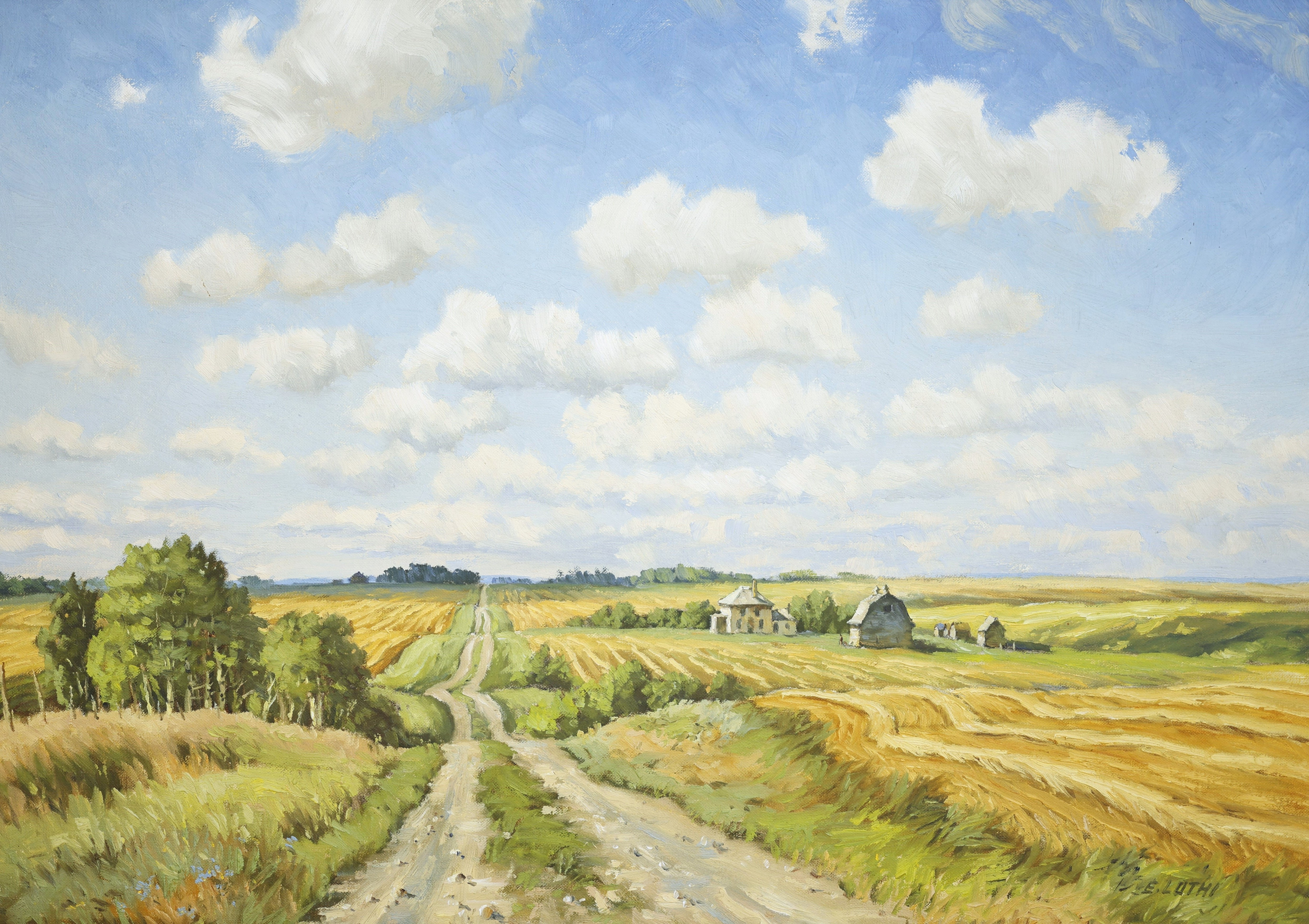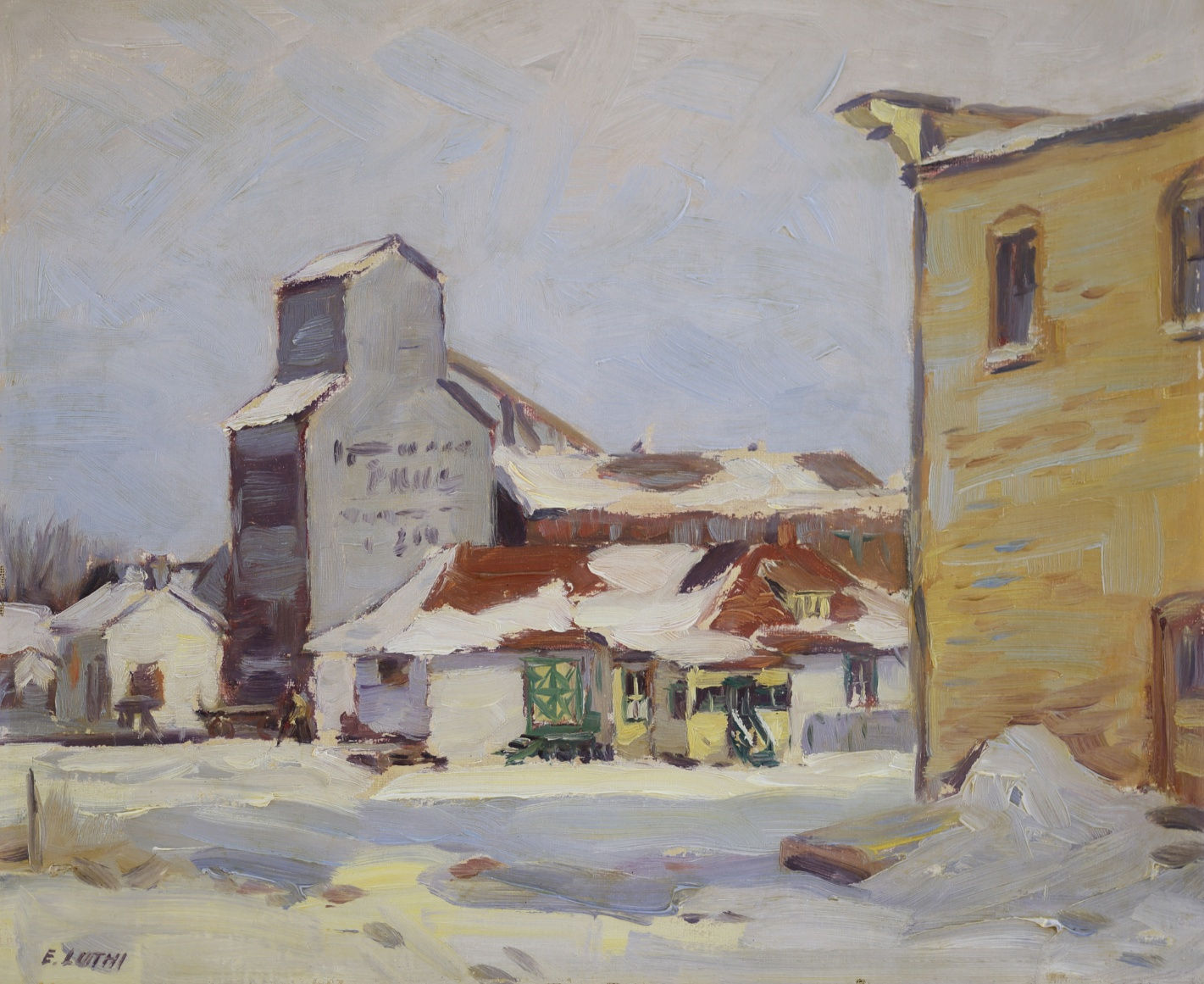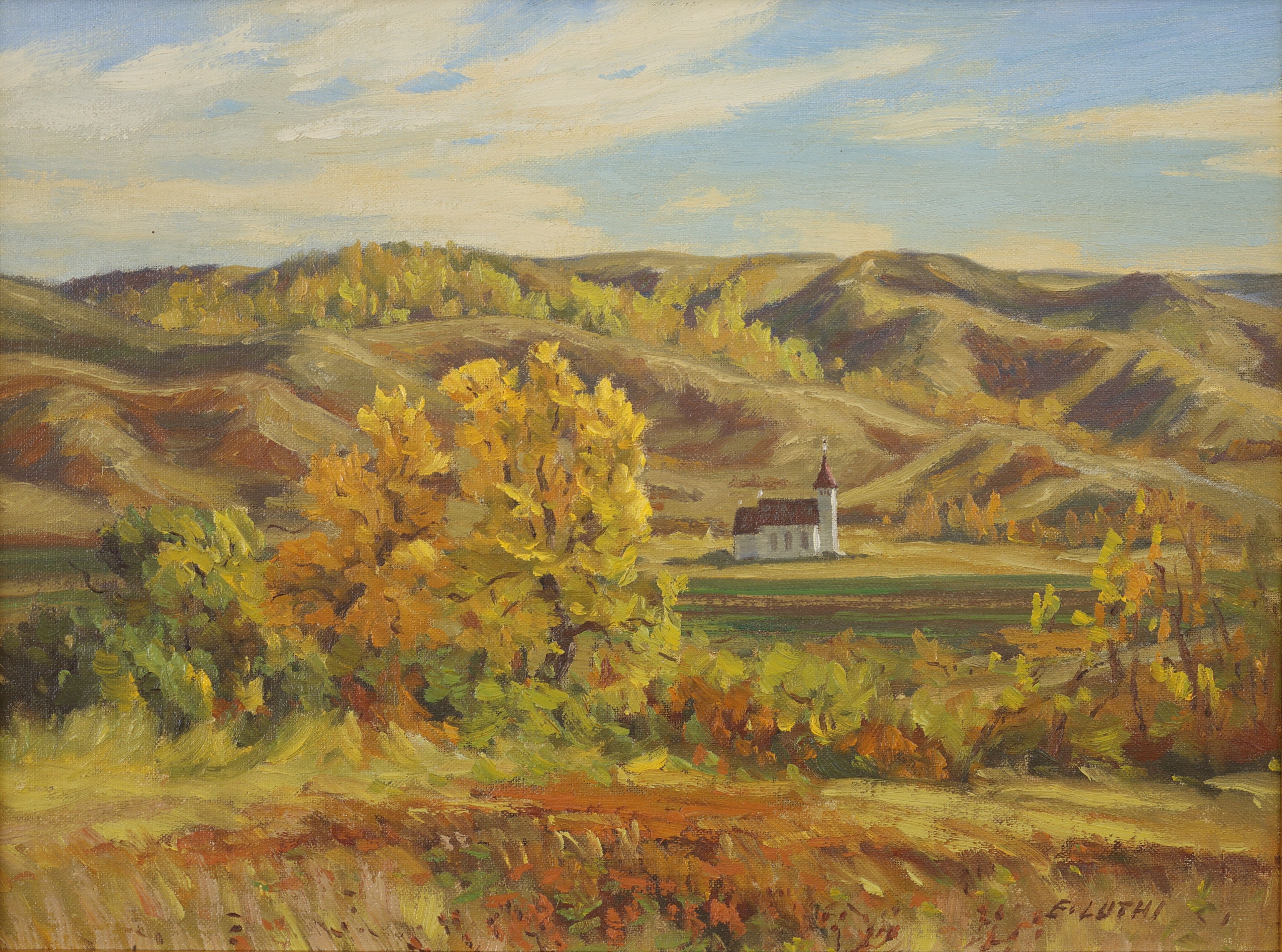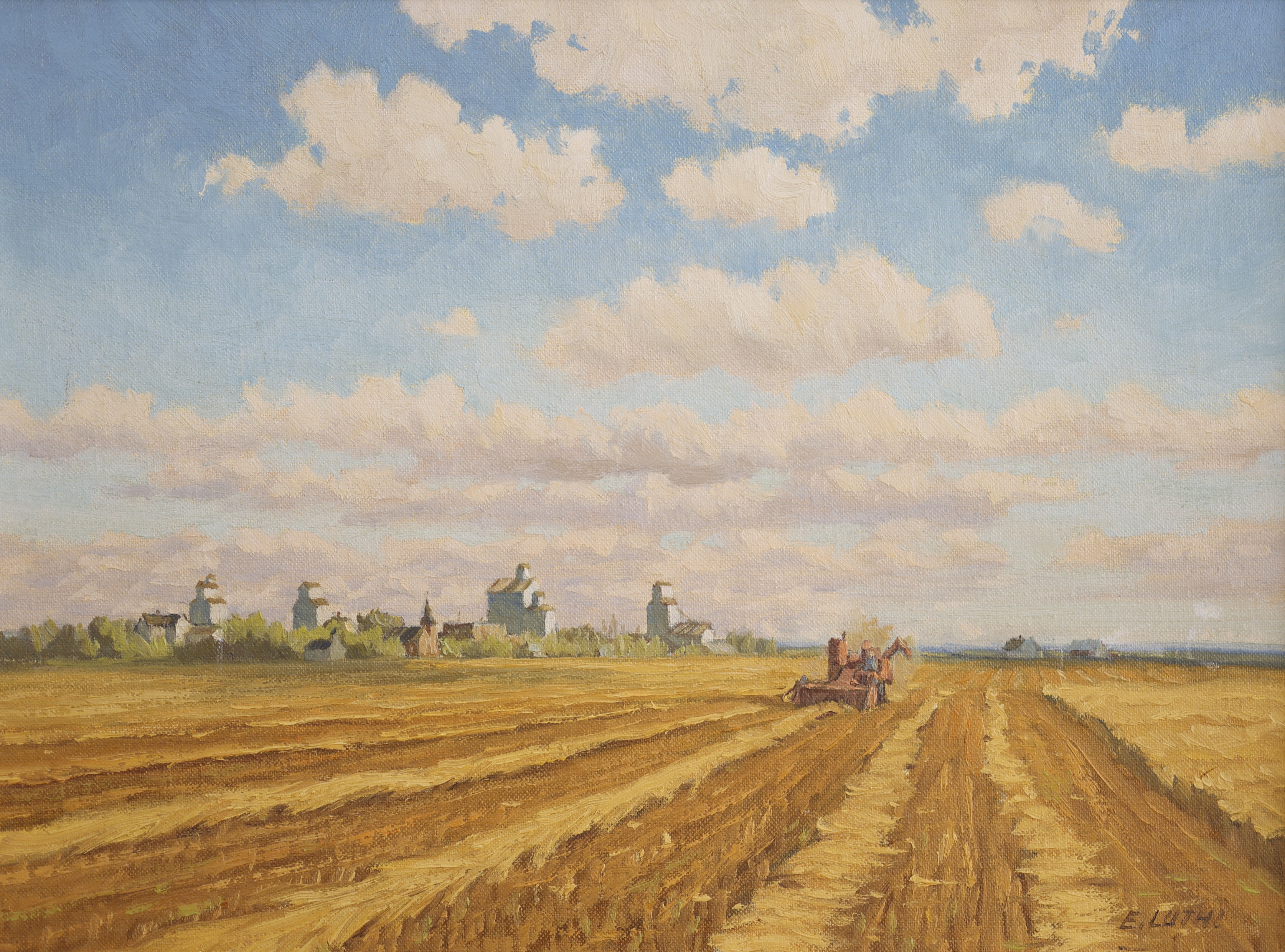Ernest Luthi (1906-April 1983), born in Zeebach, Switzerland, was a dedicated artist whose passion for painting illuminated the simple beauty of Saskatchewan's landscapes. After his family emigrated to Canada in 1914, they settled near Punnichy, Saskatchewan, where the young Luthi was surrounded by the scenes that would later populate his canvases. Despite starting his working life early at age 15—contributing to his family’s livelihood through farming, carpentry, house painting, sign painting, and railroad work—Luthi maintained a fervent dedication to art.

Ernest Luthi; Road Past the Farm, Southern Saskatchewan
His formal art education, though modest, was crucial. He took correspondence courses in illustration from the Washington School of Art during the 1920s and later attended night classes at the Art Institute of Pittsburgh, Pennsylvania, earning his diploma in 1928. This education, combined with his innate talent, laid a robust foundation for his artistic career. In 1951, due to health reasons, Luthi took a significant step to pursue art full-time, marking the beginning of a prolific period in his career.

Ernest Luthi; Station in Winter
Luthi's work, deeply rooted in his connection to the land, celebrated the vast skies, rustic prairie buildings, and agricultural scenes of Saskatchewan. He often worked from photographs or pastel sketches he created, translating these studies into evocative oil and watercolor paintings.
Employing a sophisticated knowledge of light, perspective, and colour, his paintings eschewed the simplicity often associated with nostalgic Folk Art, presenting instead a more naturalistic, detailed depiction of the landscape. This thoughtful representation suggested a calm sympathy between farmers and the bountiful nature they inhabited.

Ernest Luthi; September in The Qu'Appelle Valley
Throughout the 1950s and beyond, Luthi's work gained widespread recognition across Saskatchewan, showcased in numerous exhibitions. His art found a home in prestigious collections, including those of the Government of Saskatchewan, the MacKenzie Art Gallery in Regina, the Mendel Art Gallery in Saskatoon, the Saskatchewan Arts Board, and the University of Saskatchewan.

Ernest Luthi; Harvest at Pense
In recognition of his contributions to the arts and community, Luthi was awarded an Honorary Doctor of Laws degree from the University of Regina in 1975. His commitment to capturing the spirit of Saskatchewan’s landscape not only made him a beloved local figure but also an artist of historical significance.
Ernest Luthi passed away in 1983 in Punnichy, the same town where he had laid his roots. However, his legacy continues to resonate; the house he built in 1938, a testament to his carpentry skills and artistic sanctuary, was transformed into a heritage property and art gallery, ensuring that his name and work would continue to inspire and be celebrated by future generations.



